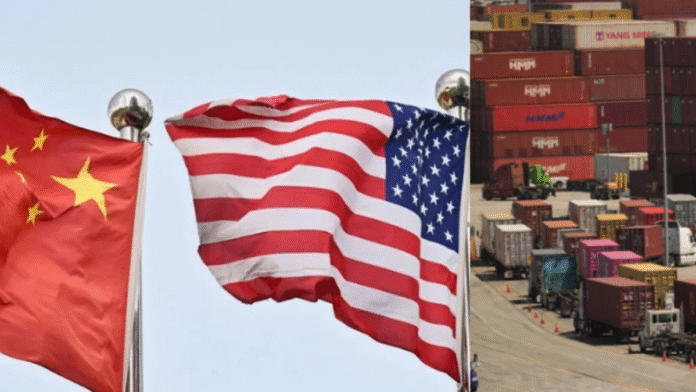5 KEY POINT SUMMARY
- Trump’s tariffs triggered panic among U.S. businesses relying on Chinese goods.
- Companies like Lilac St. and Basic Fun are halting shipments and draining inventory.
- Firms are scrambling to move production to India, Malaysia, and the U.S.
- Importers fear supply gaps, rising costs, and business collapse.
- Entrepreneurs say they need time and stability, not policy whiplash.
U.S. Companies Struggle Under Trade War With China
The trade war with China escalated sharply this month as former President Donald Trump imposed 145% tariffs on many Chinese imports, forcing American companies to make drastic decisions. For Lilac St., a Seattle-based lash brand, that meant slamming the brakes on a truckload of goods at the Mexican border—too risky to bring into the U.S. under the new fees.
Founder Alicia Zeng said the tariffs could exceed the product’s value. “We’d lose money on every item we sell if we paid that,” she warned.
Delays, Inventory Shortages, and Uncertainty
Companies like Lilac St. and toy-maker Basic Fun are pausing imports entirely, hoping for a quick end to the trade war with China. In the meantime, they’re eating through existing inventory and watching the clock.
Basic Fun’s CEO Jay Foreman said if tariffs don’t ease soon, the business might not survive. “We’ll be out of business,” he admitted, while estimating only two months’ worth of stock remains.
Toy manufacturing and niche e-commerce brands—once fueled by cheap Chinese production—are now in limbo, trapped by pricing and limited alternatives.
Supply Chains Scramble to Shift
Several firms are racing to leave China, moving production to Southeast Asia or reshoring to the U.S. Bob Brammer of Stromberg Carlson Products has already shifted parts of his RV accessory business to Michigan and India, and new tariffs are speeding up the transition.
However, shifting manufacturing is neither easy nor cheap. Brammer now needs new machinery and custom molds in under eight weeks. Despite supporting the tariffs, he wished the administration had provided more time to prepare. “I’ve got to keep inventory flowing,” he said.
Smaller Goods, Bigger Problems
The trade war with China has hit smaller consumer goods especially hard. Many products—like fake eyelashes, Care Bears, and aluminum handrails—depend on intricate supply chains and specialized labor that U.S. manufacturing doesn’t support.
Zeng’s lashes, made with South Korean fibers and hand-assembled in Qingdao, can’t easily be reproduced elsewhere. “You couldn’t just turn on a machine somewhere,” she explained.
Even when production could move, Chinese suppliers often aren’t ready to commit to new locations, further stalling transitions.
No Time to Raise Prices or Plan Ahead
Consumer electronics brand Scosche Industries has tried to exit China since 2018. CEO Roger Alves cut reliance from 90% to 30%, but admits the rest is hard to replace. New tariffs are forcing another import pause, while the company tries—again—to raise retail prices.
“You just don’t raise Walmart the next day,” Alves said. His team recently returned from a Hong Kong trade show where Southeast Asian suppliers pitched their services. Still, costs, timelines, and quality concerns remain barriers to switching.
Shipping firms are also feeling the shock. Many now demand full payment upfront, fearing importers will abandon goods stuck in tariff limbo.
Time Is Running Out For Many Businesses
As the trade war with China deepens, companies are trapped between soaring costs and uncertain policy shifts. Many don’t know whether to hold shipments, hike prices, or revamp operations entirely.
Zeng is holding out hope for a resolution, but warns tough choices are coming fast. “We’re trying to hold out one more month,” she said. “But after that, we’ll have to make some hard decisions.”
For companies across the U.S., that month may be the difference between surviving or shuttering under the weight of tariffs they didn’t see coming.





